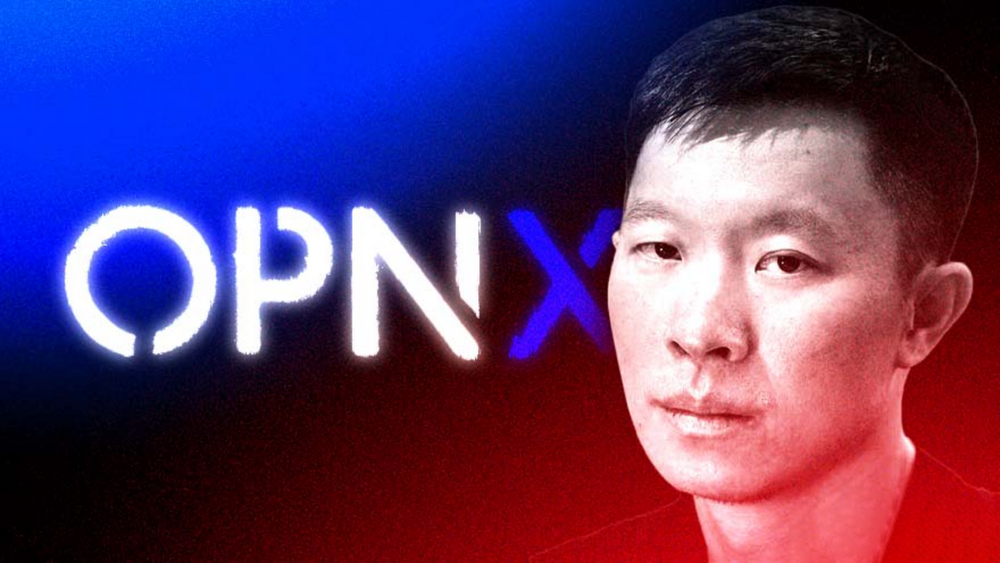Blockchain under epidemic situation: Revitalize "IOU" to help small and micro enterprises loan
Tao Li and Lu Siye reporting from Shanghai
Source: 21st Century Business Herald
The sudden new coronal pneumonia has given all companies a test paper. Compared with the response of the head enterprises, small and medium enterprises face a big test. Various problems, such as tight cash flow, difficult online transformation, few financing channels, and high credit evaluation costs, have put small and micro enterprises in trouble.
A few days ago, the survey results of the School of Economics and Management of Tsinghua University showed that 85.01% of enterprises could not maintain their cash for more than 3 months due to the impact of this new crown pneumonia, and nearly 30% of enterprises expected that the decline in operating income in 2020 would exceed 50%.
- Analysis | Entities need to obtain BaFin license. Does the new law pave the way for Germany to become a "cryptocurrency paradise"?
- Price moves against gold: is Bitcoin still a safe-haven asset?
- Read the tree of life on Ethereum
In fact, it's not terrible for the revenue to temporarily go to zero. All small and micro business owners are looking forward to the explosive growth of business data after the epidemic. They hope that they can hold enough funds to survive this cold winter before they can wait for spring.
How can small and micro enterprises help themselves? In the field of supply chain finance, the financing business model dominated by blockchain technology is rapidly advancing. Generally, in supply chain finance, after the core company is “on the chain”, the buyer's real transaction background together with the payment commitment generates a receivable voucher, which is claimed by the seller and becomes a transferable and financing asset.
Such "ows" can help small businesses get loans, and they can also revitalize the capital, financing and credit assets of the entire chain. How its application scenarios land is still being explored.
Revitalize the company's "IOU"
It is understood that during the epidemic, small and micro enterprises that have not yet fully resumed their work's demand for cash flow mainly have two parts: labor costs and lease costs.
"The number of domestic small and micro business entities 'legal entities accounts for more than 99% of our national legal entities' business entities. The number is very large. The common phenomenon has caused the labor cost expenditure, and small and micro enterprises have a big problem." Ant Gold In an interview with the 21st Century Business Herald, Liang Rong, an expert on server blockchain products, revealed that the current cash flow of some small and micro enterprises can maintain manpower expenditures plus lease payments for no more than three months. Accounts receivable will become a key asset of small and micro enterprises in a critical period.
Accounts receivable are payments made by the downstream buyer of the company after the purchase of goods. When the production line is stopped, income cash flow is cut off, and the company's production and operation status has not returned to normal, the accounts receivable on the books Assets are the wealth that small and micro enterprises can use to save themselves.
In this key link, small and micro enterprises use blockchain to achieve contactless loans, which can solve the urgent need of cash flow to a certain extent. Liang Rong explained that the core enterprise on the entire link will issue a payment voucher for the core enterprise. The suppliers at all levels will pay this payment voucher based on real trade. With this voucher, he can apply for a loan online according to the bank that the ant cooperates with. This loan does not require offline meetings and procedures, and can reach a second-level loan as soon as possible.
It may be the life-saving straw that small and micro enterprises can seize the only valuable assets that can still be activated on the company's books. The tourism industry, which has been severely frustrated in the epidemic, has borne the brunt of self-rescue.
"It turned out that the trading volume of the Golden Week in the Spring Festival should be in the hundreds of millions. Everyone insisted on it for a few days this year, and it was completely shut down. The transaction volume dropped to one million. We have also been deeply considering the issue of upgrading and transformation of enterprises. One of the most critical cores of competence is capital. Enterprise development requires liquid funds, and a large amount of funds are needed for the promotion and transformation of informatization. Scenic spots at the upstream of the industrial chain, once the infrastructure can not keep up, can not catch up with the future geometric growth of passenger traffic, it is likely to do a bad job. Although you can see the increase in cash flow in the short term, it will damage the travel experience in the long run and cause huge losses.
To cultivate internal skills before the opportunity comes, the most needed thing is capital. However, the bank's line of credit for cultural tourism companies has declined significantly. As a nationwide scenic hotel development smart system platform, Zhongke Daqi has annual sales exceeding 100 million yuan. Behind this are hundreds of small hardware equipment manufacturers nationwide, a steady stream of supply transactions.
In order to solve the dilemma, Zhongke Daqi used the ant double link to form a securitization model of scenic spot assets: In supply chain finance, after the core company “on the chain”, the buyer ’s real transaction background together with the payment commitment generated a receivable. After the voucher is claimed by the seller, it becomes an asset that can be transferred and financed.
Later, the bank glanced through the information in the supply chain, knew which large enterprise's product line the order was ultimately supplied to, knew that the borrowed money would flow to the normal supply of the main business, and also knew the repayment ability, and the loan risk became more controllable. The entire financing flow process is clear and immutable, and one chain eliminates risks such as fund misappropriation.
Building a Supply Chain Finance Ecology
Consistent with the choice of Zhongke Banner, China's largest new alcoholic retail company 1919 is also going through the difficulties with the blockchain. The platform currently has about 12 million registered users and requires a strong supply chain to support development.
1919 platform secretary Jin Qinghai told the 21st Century Business Herald reporter that due to the epidemic, during the Spring Festival, one-third of the company's more than 1,900 stores could not be opened, even for offline stores that have already opened. The flow of sales has also fallen sharply.
At the same time, the traditional liquor trading industry is basically cash transactions, and the requirements for the flow of funds are very high. Distributors also need to withdraw funds quickly, so they need to have rapid capital turnover.
At present, the 1919 platform has provided nearly 100 million capital flows for small and micro enterprises upstream. Throughout the process, Jin Qinghai can feel the innovation of blockchain + supply chain finance and its improvement of the efficiency of the entire industry. The increase in efficiency has also brought about an increase in product prices and service efficiency.
"Our industry is very special. The upstream is a front-line winery. They have a lot of funds and want to be able to participate in the supply chain finance of the entire liquor distribution, and then give the funds to the B-side suppliers. Of course, it is mainly banks. Provide services. "In Jin Qinghai's view, Shuangliantong provides a good risk control system that can empower the entire industry, which is dominated by core enterprises.
He believes that there will be more opportunities for fintech innovation in the future. In some direct-managed stores with personal investment, if there are other restaurants, KTVs, tobacco hotels, etc., there will be more demand and greater motivation. Go for more accounts.
Looking back at the development of blockchain technology, its landing in the field of supply chain finance has been relatively deep. Upstream companies can finance through accounts payable of core companies, while downstream companies can finance through warehouse pledge and other models. The core technical value of the blockchain is to build trust, which can break two "difficulties" in the supply chain finance field: the problem of trust transfer between multi-level enterprises in the supply chain, and the untrustworthy information and data of the trade and capital sides.
"The core enterprises received financial support from financial institutions during the epidemic, and the entire supply chain will be infiltrated, which can guarantee the operating rate and corresponding employment. When the entire society resumes production and life, enterprises will be better able to get better Order, get better development. "Zheng Hao, expert of Ant Financial's blockchain business development, told a 21st Century Business Herald reporter.
We will continue to update Blocking; if you have any questions or suggestions, please contact us!
Was this article helpful?
93 out of 132 found this helpful
Related articles
- Blockchain donation system is useless because these issues are not taken into account
- BTC additional issuance, BCH miners stole coins, a "hand-to-hand battle" among cryptocurrency camps
- Technical Guide 丨 How to implement off-chain storage on HyperLedger Fabric
- Chinese Computer Society | Discussion on Blockchain Frontier Technology: Performance, Security, and Applications
- Perspective | Bitcoin's Widespread Adoption Will Promote Friendly Policies by Regulators
- "Crypto Turkey" in attack: Or will it open the door to the crypto market for 1.8 billion Islamists worldwide?
- Break the record again! Square Founder of Twitter Founder Jack Dorsey Sells $ 178 Million Bitcoin






